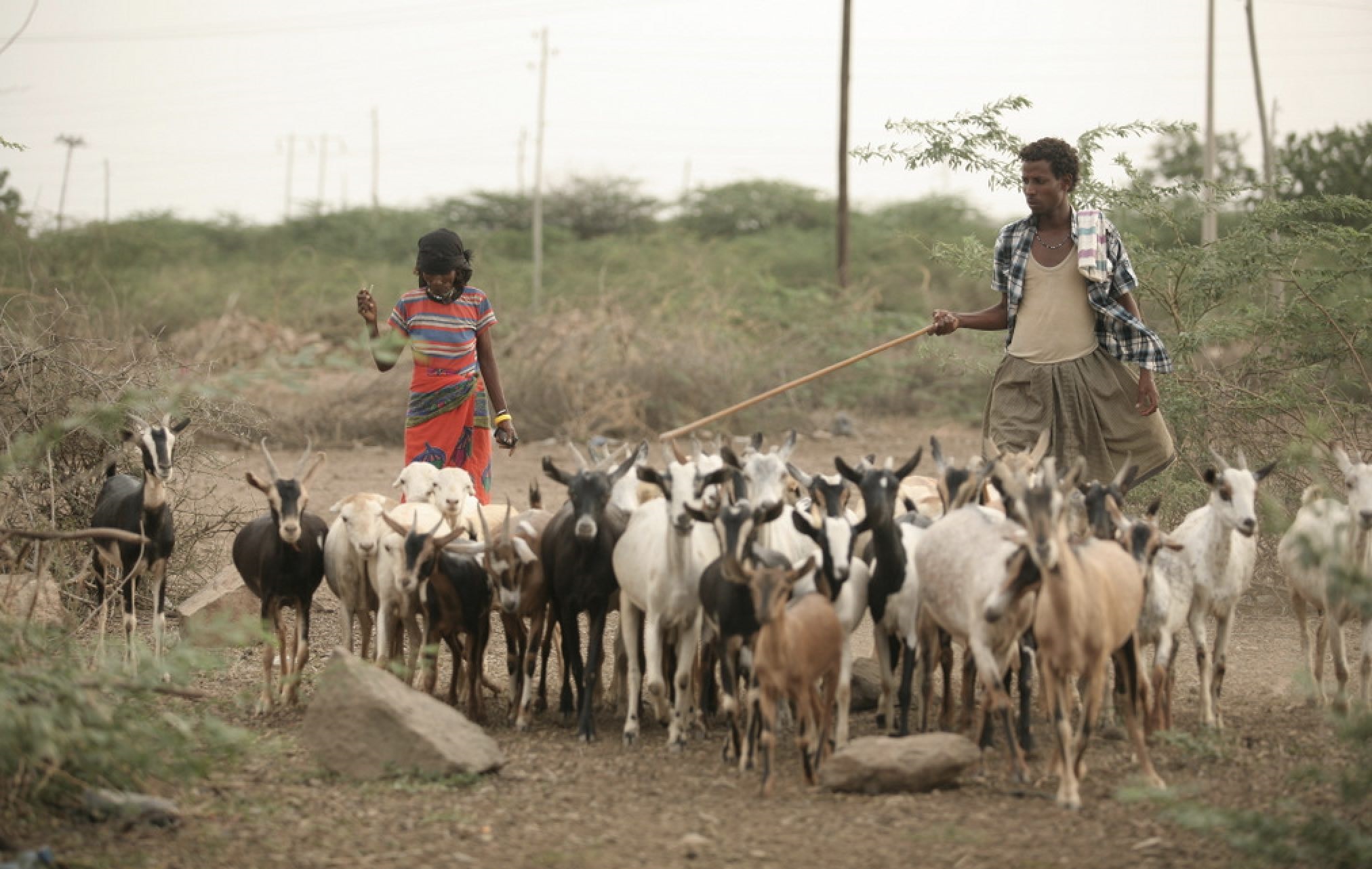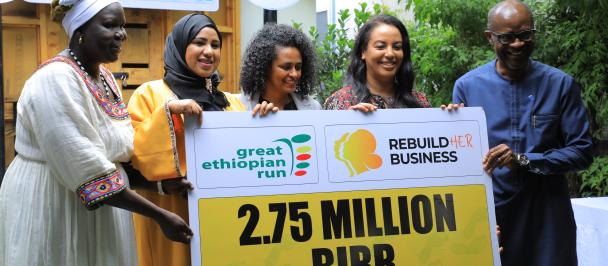Ethiopia enhances irrigation, watershed and pastureland management
Translating climate plans into actionable climate solutions
May 31, 2022
Photo Credit: ©FAO/AU/Yohannes Zirotti
In Ethiopia, changes in rainfall patterns are affecting smallholder farmers that are highly dependent on rain-fed agriculture and natural resources. Data collected over the past 50 years suggests that temperatures have increased by an average 1°C since the 1960s and that rainfall is subject to high variability between years, seasons and regions. The combined risks of water scarcity and recurrent droughts due to rising temperatures could increase the incidence of food insecurity and prompt population movements in search of natural pastures and water resources, implying that the pastoral and agro-pastoral activities in the country should adapt to the changing climate.
To strengthen national, regional and Woreda (district) level capacities to adapt to climate change, Ethiopia is implementing its National Adaptation Plan (NAP) which categorizes short-term adaptation priorities in the sectors considered most vulnerable to climate change, namely: agriculture, forestry, health, transport, energy, industry, water and urban. Ethiopia is working to integrate climate information into planning and decision-making for development interventions, and prioritizing climate resilience across policies. Its updated nationally determined contribution (NDC) submitted in July 2021 also outlines adaptation commitments focused on the agriculture and land use sectors, with a priorities identified in livestock diversification, drought-resistant animal breeding, rangeland management, crop, and livestock insurance.
Ethiopia has partnered with the FAO and UNDP Scaling up Climate Ambition on Land Use and Agriculture through NDCs and National Adaptation Plans (SCALA) programme (2020-2025), funded by the German International Climate Initiative (IKI), to further support the implementation of its NDC and NAP, focusing on climate action in the agriculture and land use sectors. In early 2022, Ethiopia officially launched the SCALA programme with an inception workshop that brought together key stakeholders from the Ministries, private sector and civil society institutions. The SCALA programme sat down with Negus Lemma, the Director General at the Climate Change and Biodiversity (EPA) and H. E, Wondale Habtamu, the Advisor of the Minister (MoA) in Ethiopia to learn more about the outcomes of the workshop and highlight the programme’s plans for the next five years.

 Locations
Locations
